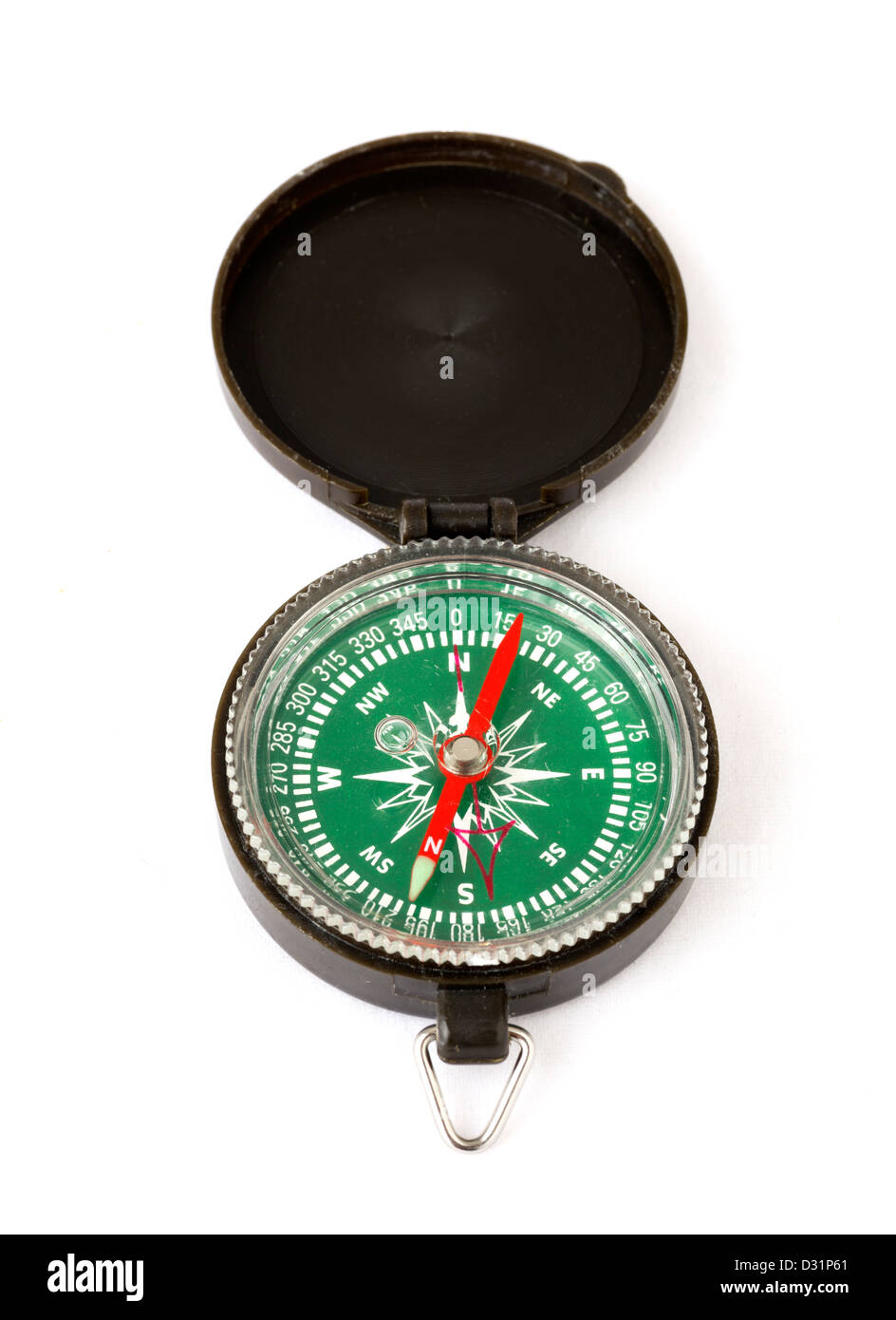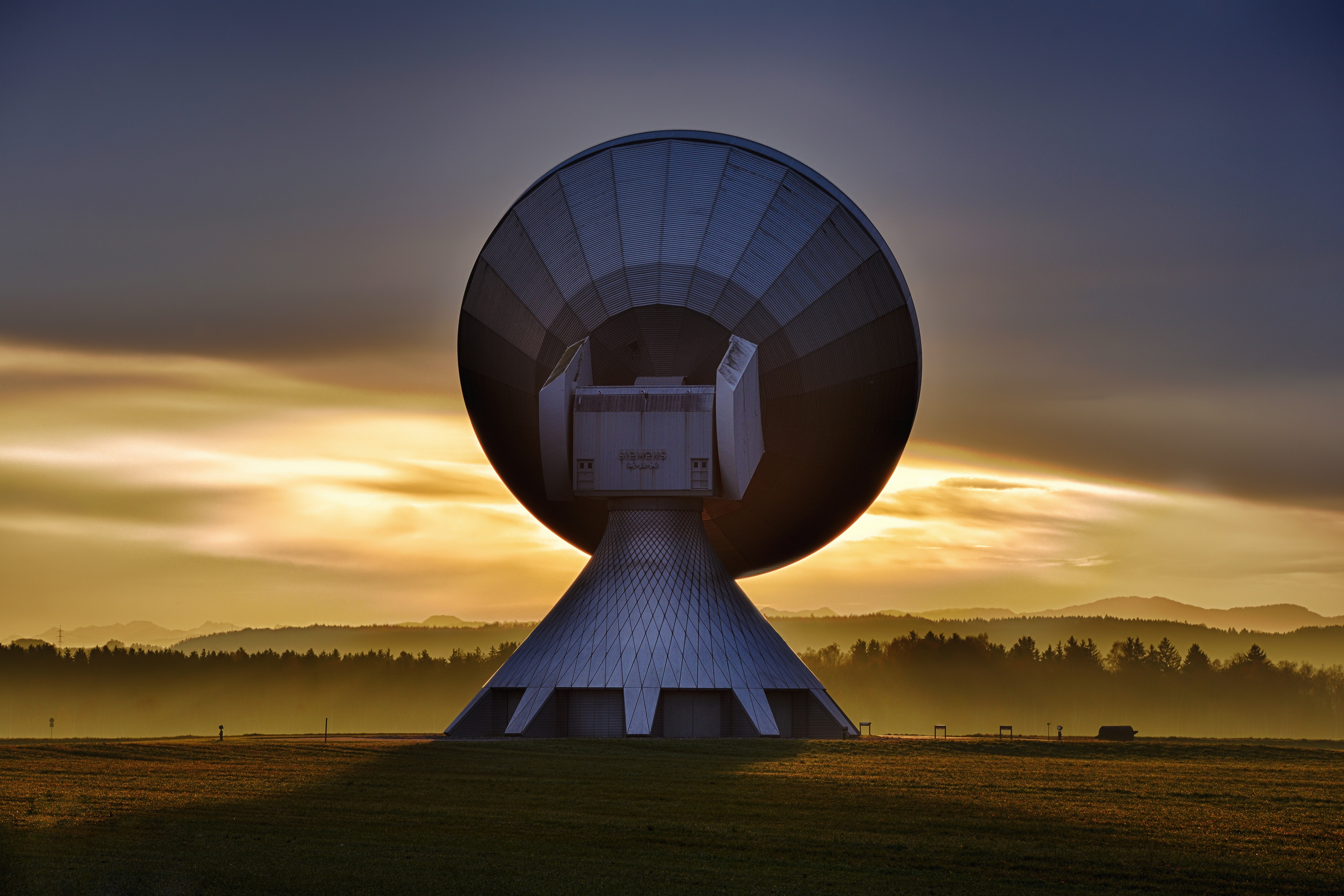What’s your opinion? Does google really “not work” anymore? Are there any better search engines? Why did the quality of search results go down? I honestly stumbled onto this question through this music video, what is ironic in it’s own way i feel…
I need an engine where if I put something in quotes it appears on the site, visible to the human eye. sure sure it can ignore case, but otherwise the damn word or phrase should be there.
Yep, if I put a word in quotes with a minus in front of it, it used to mean that search results with that word would not show, but now it does not matter because “AI haz learn”
yes. I will check given the one guys reply but I know in the past I have minused something then ctrl-f and the damn thing is there.
Actually i still use this feature but without the quotes (eg -keyword1 -keyword2 …), few weeks ago it still worked
I might try it again then… that is if I have to search for something on Google again
This is such a simple ask and yet it seems almost impossible with modern search engines. They all seem to insist on second-guessing you. It’s a lack of respect for the user: “We know you are dumb but don’t worry, we will figure out what you really mean. Oh and don’t forget to watch your ads.”
My other pet-peeve is that they will almost never admit that maybe they just don’t have any good hits for the query. They insist on pushing some irrelevant crap in your face instead. I guess it comes down to needing to show the user something so that they can mix in those ads.
I need an engine where if I put something in quotes it appears on the site, visible to the human eye
I can confirm this works on Kagi:

I’ve just recently started using Kagi. It’s great, it’s fast, I love that I can raise, lower, or block certain sites in the results.
However, $5 a month for up to 300 queries is pretty steep for the average user. Well, not for the average user (apparently the average google user only searches 100 times a month) but I used up the 100 demo searches over about 48 hours, mostly just researching for responses to lemmy comments.
I subscribed anyway. And I understand search engines are not cheap to run. But time will tell how much this will end up costing in the long run, and if it’s worth it over a free one with an ad blocker.
I became a paying subscriber for kagi today. The way I justify the cost is it’s saved me time digging up technical information at work and that increase in efficiency is worth money to me. Also, I hate ads and SEO crap, and $5 isn’t really that much these days. I’m trying to reduce my reliance on Google so it’s nice having an actual superior search experience, even if I have to spend a little money for it.
Yeah, I tend to try to support new projects doing things different just because I want them to grow. At the moment it costs them approx 1.25 cents per search, which is what pricing is based on (they also need to offset the searches for free trials so the price is a little higher) but presumably there are fixed costs that will mean this cost can come down as the userbase grows. $5 is also not much to me, but it can mean a lot to the service which is young and founder-funded.
Google is definitely iffy for me, which is why I’ve been bouncing between alternates. A lot of people like to complain about how google is filled with ads and spam results like Pinterest, but even then it just doesn’t really seem to give accurate results anymore, and even when results are accurate it’s very surface level. From what I found, it loves to push listicle articles and such when googling a new topic, as opposed to say, Wikipedia or an encyclopedia article. Like if I search about Barbie, I’ll probably get a bunch of ScreenRant-esque articles before I get the IMDB page. There have been dozens of instances of me searching for controls for video games and getting clickbait-y articles, some of which barely even make an attempt to answer the question, before getting an IGN or GameFaqs article that’s to-the-point and answers my fucking question.
There are definitely better search engines out there, but they all have their own flaws. DuckDuckGo is pretty bare bones and can also give poor results if your search is too vague. You have to adapt to that one. Others like Brave have AI to help out with summaries and stuff, but Brave’s management is “problematic” and so some people might not want to support them.
TL;DR: on google, not only is there ads and spam, but it’s just hard to find answers anymore. Everything is clickbait. And with other options, they are good but they also have their own major flaws that some might find unappealing.
Exactly, I’ve noticed this over the past few months, actual relevant results are being pushed much further down the stack.
If you want to explore alternatives, I’ve been using SearXNG, a so-called “metasearch engine”, where you can get a combination of various search engine results, based on your preferences. It’s pretty good, when it works (it tends to get rate-limited fairly often… or at least some of its results / search engines do, which can get annoying).
Self-hoster of a searxNG here. With docker, your can spin your own in 1 minute top. I’ll never go back to any other search engine, this is the best (imho).
You can also selfhost SearxNG with modest hardware and side step the rate limits. I love it. Happy to answer any questions
How does it compare to Kagi?
I can’t self host it, what’s the problem with using an existing instance?
I haven’t used Kagi much, but my understanding is that Kagi has their own indexing and you can customize your search by ranking your results.
SearxNG runs searches against many other search engines and then uses an algorithm to rank the results sanely. So less customizable but also the net you’re casting is much wider.
You could easily self host on a free-tier instance in Oracle cloud or AWS for a year, or even just run it on a laptop. But if you really can’t see a way to do that you can of course use one of the listed instances, you’ll just be more likely to bump up against rate limits since you’re sharing limits with many other people.
Just set this up on my Unraid server and it’s amazing. Great suggestion and thank you.
These days I often just skip the first 2 pages and go straight to page 3 for my search results to be able to find anything slightly resembling what I searched for.
Just to help me understand: Why is it that when I try the same search on different instances of this, I get very different search results?
This would depend on the search engines enabled and/or the default language/country set (if any) for that particular instance, you can find those in the settings of the instance itself (and enable/disable whichever you’re most interested in, as well as a few other relevant settings).
Bookmarking this for later. Thanks for this.
Woah thank you for this!!
Brave’s marketing has always made me uneasy, but it was more like a vague thought. This why I’m intrigued by your opinion. Do you have examples of their “problematic” management?
It’s of course biased, maybe for some people it wouldn’t be problematic, but the CEO of brave has historically donated to organizations and California state bills that opposed same-sex marriage. This was around 15 years ago (2008 and 2009) so maybe he’s changed. But for some people, that might be a dealbreaker. He resigned from Mozilla in 2014 because it came to light that he had made these donations. He apologized in 2014, but for some people that might not be enough.
(note: I’m not trying to be biased with this. For some people reading this, his apology might be perfectly fine for you. But, for others this might be enough to be labeled “problematic.”)
Oooh I agree, this is some actual dirt
To focus more on the product there are 2 incidents I think of as to why I don’t use brave
honorable mention is their affiliation with crypto
I read an article just yesterday about Brace selling AI access “rights” to other peoples’ copyrighted work that gets pulled by their search, too. Like they have an equivalent of google snippets, but with much longer “snippets” of copyrighted books, and they explicitly sell “rights” for people to scrape that and other things for AI datasets, as if their search engine indexing a thing gives them ownership of it.
Also there was that one time they put a link to a neo-nazi website into their list of defaults on their homepage. Yup.
It’s all to the point that I don’t actually trust a word they say about their privacy protections either, really, even if I were willing to ignore everything else.
Yeah, the crypto stuff is getting too much, plus they’re shoving stuff like their VPN, search, and news down users’ throat. I used to use Brave as a secondary browser bc of its profile feature, but switched to Orion a couple weeks ago and never looked back.
deleted by creator
Do you have a source for that? I say this because it made the news everywhere when it was exposed. Just to be clear… it wasn’t that affiliate links made the index. The Brave browser would hijack what you typed in the URL bar, even if it was the exact URL, with their own affiliate link
Looks like I need to start saving things as I stumble upon them because searching for them later is fruitless. I’ll delete my comment as I can’t dig up a source.
I honestly have never used Brave largely because its logo makes me feel like the developer is way too into WoW. Weird reason to judge a software probably, but sometimes it’s best to trust your gut.
I have notice that in the past you altered your terms a bit amd got different results, now the search gives me junk so I alter the phrase and same junk shows up. So it is not as effective at doing a deep search these days that actually matches the search terms.
Have you tried searching incognito? I find the junk is generally tied to profiles Google has on me; they decide based on the data they’ve built up what I should really be looking for.
Searching incognito tends to return results closer to what I got 5 years ago.
I run tracker control, and only essentail scripts can run, all ad stuff is totally blocked.
SEO and AI-generated clickbait have basically ruined most search engines. I’ve yet to find one that can really tackle this properly. I believe Kagi offers higher quality results but I can’t really verify that myself as I don’t have an account with them.
kagi seems very enticing to me, but man thats expensive… anyone here use it?
I’m still on my trial period but I think I’m going to pay when it runs out, I’ve been really happy with it so far. I think it’s saved me a good chunk of time at work I would have wasted digging through Google SEO crap so it feels like it’s worth spending a few bucks on.
I got work to pay for it. It is pretty good, and I like the lenses function (focus on just forums or other ways to sort). I can’t say that it’s necessarily better in general than startpage.com, which is anonomized google (gets you out of the filter bubble though). I feel like Kagi is very slightly better, maybe 10 percent at most.
I also don’t love the hard ID they have on you for payment. They claim not to track you but they certainly can, and I’d argue better than Google can if you use startpage.com or whatever anonomized version.
I also don’t love the hard ID they have on you for payment
What’s the hard ID? You can use a burner email and a pre-paid/anonymous Visa card without any issues.
Here’s some prepaid Visa cards you can buy with bitcoin (I have successfully used this site): https://www.coinsbee.com/en/payment-cards-bitcoin
Interesting - I never thought of that, mostly because the overhead is kind of insane (and I don’t actually think bitcoin is anonymous, but in this case good enough). I was thinking for your average person, they’re going to pull out a credit card or debit card which is a hard ID. Certainly more than if they browse to startpage.com for instance.
and I don’t actually think bitcoin is anonymous
You can pay with XMR:

I definitely agree with you though, it is a negative for Kagi. It would be nice if they let you pay direct via crypto or other methods.
I have the $10/mo account but I’ll disagree with @mrmanager@lemmy.today that it’s worth the money.
Don’t get me wrong I wouldn’t go back to Google/DDG, but while I can afford Kagi’s monthly cost I don’t believe that everyone can, nor do I think it’s an appropriate cost for a search engine.
I feel like I am an average search user, and I easily burn through 1000 searches a month. I’ll possibly be upgrading to the $25/mo unlimited account.
If you’re used to doing conversion searches like “100 USD in EUR”, or “2.5g in oz”, or even “20 * 12%” - you get charged for each of those. That doesn’t seem so reasonable to me.
I also considered Kagi a bit and I think it might work if I start to change my search behavior. I got too used to abusing search engines as a quicker way to open websites (I could use bookmarks for that) or for bangs (I could use the browser itself for that).
If I managed to untrain myself from this and start using tools for their core-purpose, the limits of Kagi might indeed be more than enough. But currently I am too lazy for such a deep change in my daily workflows.
If I managed to untrain myself from this and start using tools for their core-purpose, the limits of Kagi might indeed be more than enough. But currently I am too lazy for such a deep change in my daily workflows.
Exactly - exactly my problem. And why I’m probably going to reluctantly upgrade to the $25/mo unlimited. It just irks me that I feel like I’m getting ripped off :P
Imagine installing and opening a separate units conversions app just to find something that used to be an instant search away.
Well for unit conversion I have a plugin for ulauncher. That is even quicker than having to alt+tab into the browser. So THAT particular problem isn’t one of mine :-)
I understand if you can’t afford it. Money doesn’t grow on trees in this world. But Kagi has been very transparent about the reason for the costs - it’s what they need to charge to not lose money, since they don’t sell your user data or track you.
It’s unrealistic to think that having a search engine is free, and the reason Google is free is because it tracks you and sells your data to advertisers, and probably also makes sure you get search results that benefit those advertisers. It’s quite simply a bad choice to use an ad company to search the web.
Kagi also had a blog post about search usage, where they used googles search statistics to determine that the average person searches 3 or 4 times per day (90 to 120 times per month). This amount (100 searches) is free on Kagi.
300 searches costs 5 dollars.
If you are doing 1000 searches per month, that’s as much as myself and I work as a programmer / devops guy. We search a lot. That’s much more than the average person. We are in the top 1% actually. Nice to be there for something right? :) Cost for us is 10 dollars.
I couldn’t find anything about your claim that conversion would cost extra, not on the pricing page and not in the FAQ section. I also did a few conversation searches and there was no info about additional price. Can you link to where it says that?
I couldn’t find anything about your claim that conversion would cost extra, not on the pricing page and not in the FAQ section. I also did a few conversation searches and there was no info about additional price. Can you link to where it says that?
Just look at your billing page and do a few of those searches. You will see they count as a paid search - nothing special you need to look for.
I’m not saying they charge extra for them, just that they charge for them like other searches. Doing math in the address bar is so second-nature to me now, and it seems a bit silly for Kagi to charge me for working out what 2 * 8 is.
Kagi has been very transparent about the reason for the costs - it’s what they need to charge to not lose money, since they don’t sell your user data or track you.
I’ve seen their posts on this, but the question is how accurate that data is. 80 searches costing Kagi $1 doesn’t intuitively feel reasonable, but perhaps it is the truth. Google’s search API is $1 per 200 queries, and you would assume they make a profit at that pricing: https://developers.google.com/custom-search/v1/overview#pricing
Of all the subscriptions I have, this one seems like the least value for money for me personally, when I can get for example 5TB of cloud storage for less cost.
It’s not that I’m comparing no-search to search, it’s that I’m comparing the incremental improvement from DDG to Kagi, and considering whether that improvement is worth $10 or $25 a month.
Ah sorry, I misunderstood you. Yes they count as a search.
I don’t think you can compare pricing to Google. They make profits by combining any payment with selling your data for profit. There is no way Kagi can compete with that since they don’t sell your data.
To me, search is the most important thing I use the internet for. I just think it’s reasonable to pay a good competitor that doesn’t sell your data and provides excellent search. But if you can’t pay them, of course that’s fine. Maybe you need 10 dollars for something else. But for me, Im not in the financial zone where I even miss 10 dollars or notice it’s gone.
To me, search is the most important thing I use the internet for
I like this framing. That might help me come to terms with their cost 👍
It’s honestly why I’m paying for it.
I also pay for email for the same reason. :)
For email, Fastmail is just excellent. I use their email aliases function a lot. So you can one-click generate an email to use when you sign up on a service and when you don’t use that service anymore, delete the email address.
Makes it impossible for them to sign you up on advertising lists since you can just delete that email address if they annoy you.
Worth every dollar. The quality is so good that you will switch and forget Google exists. I haven’t used Google search in 6 months even once.
I do. Any questions?
It hasn’t worked for a while. Even a year ago it was considerably better.
I can’t believe it, but Bing is now the better search engine. What is happening to the world?!
MBAs and VCs
I agree! I find myself amazed that I’m binging now when for so long that was a joke.
Google is absolutely useless now, nothing but SOE farmed rubbish.
It’s become completely unusable.
I’ve moved over to Kagi 100%
It’s well worth the money for the amount of control I have over my experience. Being able to black list, downplay or uplift specific sources is awesome
I like the idea of Kagi a lot, but the pricing structure is not yet the right one for me. I fully support the idea of paying for search - I paid for Neeva and now that this has shut down I pay for Brave Search Premium. But I despise having limits, that’s a mental burden I don’t want. And with Kagi that would mean I have to pay $25 a month, and that’s not worth it for me.
You’re not limited to a set amount of searches if you pick a cheaper Kagi plan… the plan is just for how many are pre-paid. You’d have to do six times the pre-paid number of searches on the $5 plan to get billed $25, so there’s no point in paying $25 monthly unless you’re actually doing thousands of searches every month.
But either way, there is no limit.
Idk, that might even be worse imo. I don’t want to go back to the days of surprise bills like you’d get because you went over your alotted minutes/texts/GBs, or to have to think about whether or not a particular search is worth $.
The typical surprise bill would still be a lot less than your monthly payment for the infinite searches option. You probably aren’t going to unknowingly perform several thousand more searches than you normally do without noticing it.
Anyway, your other option is to scroll through infinite ads trying to find the few actual search results.
Pick your poison.
You can set a price point you get a notification, and another price point where there’s a hard cap. So I’ve started on the $5 a month plan which is 300 searches plus 1.5c per additional search. Then I set a $5 limit on the extra searches, so I’ll never be billed more than $10.
Never heard of Kagi but it does sound I intriguing.
You will love it. I switched about 6 months ago and it’s wonderful. When I was using duckduckgo I had to use the !g keyword to search Google sometimes. With Kagi, it’s basically switch and you forget Google exists.
Set it as default and you will see what I mean.
But it’s paid 😭 I spose I could try it for a month.
But it’s paid
Unfortunately it’s looking like that’s going to be the future of things that aren’t shit on the internet, whether it’s paying for search, or donating every so often to your Fediverse admin to help keep the lights on.
Yup try it and set as default in the browser. You will start to see a lot of sites that never showed up in google also. They have these “listacles” in search results where they group relevant sites into a small list, which makes it super simple to go to them for results.
If you want a sample search, try “best tv shows 2023” or something like that.
is this an ad?
More like organic user reviews I would say.
“organic”
The way you can blacklist listicles and similar garbage is worth the asking price in the face of it
I haven’t done that but yes, it’s pretty much unheard of that the user can actually control what shows up in search if you come from Google-land.
I’ve tried Kagi several times and the results for me are not good. I’ve pretty much gone back to Google unfortunately.
Can I ask what kind of searches you’re doing? I don’t find google all that great, so I’m curious what you’re searching for where google gives you good results.
I’ve also used Kagi for two months and can really recommend it! I switched from Google to DuckDuckGo a few years back, but Kagi is just so much faster and also generally has better results.
Being able to black list, downplay or uplift specific sources is awesome
I’ve never heard of Kagi, but yeah, those features sound like a godsend. I’d love it if you could have that on a search engine that isn’t pay to use.
I find google works fine if I’m just looking for general information on a simple topic, because it will dependably return a link to the wikipedia entry and a few of the most popular sites.
And I find that it’s pretty much useless for specific information about narrow topics, because it’s still just going to return the same general shit.
I’m not sure exactly how the change worked, but some time back (it’s been a year or two now, and maybe more - it’s just something that I sort of slowly realized had happened), they shifted to a system that made Google Fu essentially useless.
It used to be the case that you could define the importance of search terms by the order in which you listed them and make some effectively required by putting quotation marks around them.
But starting a couple of years back, it’s been generally ignoring search term order and quotation marks, and instead giving priority to specific common (and certainly not coincidentally common marketing) terms.
To anthropomorphize, it’s as if it’s developed a cripplingly narrow focus. So if, for instance, you’re looking for the title of some specific movie, it doesn’t matter how many other search terms you include or what order you list the terms in - if you include the term “movie,” that’s what it’s going to focus on. So if you’re lucky, you might get the actual movie you’re looking for, but it’s absolutely guaranteed that you’re going to get streaming services and “18 movies with real blood” style clickbait.
It’s complete shit right now. 5 or more years ago I could quickly find an answer to a very technical question with no problem. Now it is useless for anything. Just today I was looking for a shop near me that can perform a front end alignment on my RV, I searched for “Tractor Trailer front end alignment near me”. The entire first page is either tire shops that do not offer front end alignments, car tire shops that don’t even sell the correct size tires I would need for a tractor trailer, or shops 2000 miles away in various directions. It’s horrible and I think it would be faster to look in the yellow pages for what I need in this case. I never found a shop using google.
Also today I was searching for the tires I need in the shopping tab there were ads for tires that google had labeled as wal-mart but when I would click the link it would take me to a Chinese scam site.
And God forbid you look for anything involving troubleshooting your home network. Good luck sorting through pages and pages of the same copy and pasted article telling you how to restart your router.
“Have you tried port forwarding? Here’s some vague results and a screenshot of a netgear gateway page from 2006.”
I’ve noticed this even when trying to find the name of a song. I used to be able to search:
lyrics “a specific part of the song I remember” whatever random words I can remember out of order
and it would very reliably find songs, even obscure ones. Now the only way it works is if I happen to remember part of the name of the song, usually it’s full of entries for the same popular song that has one word in the title that I included that is definitely not what I’m looking for.
It sounds stupid, but I really miss that working.
Google is one of the worst offenders, with constant effort to force you to login, sponsored links etc but it isn’t unique to them.
AI (or human) generated rubbish, optimised for SEO is making it harder and harder to find what you actually want. This isn’t entirely new, there has always been a battle but it does seem like now with the AI push they are winning and we (the users/consumers) are losing.
Google is almost impossible to use when I search for solutions to maths problems. The first few pages are dominated by those sites gaming Google’s algorithm and their articles usually don’t help.
Have you tried WolframAlpha? It can break down math problems and is a wealth of information for just about everything
Yup. DDG is my go to. Every once in a while I have to use Google, but it’s rare.
Also, buy the Wolfram Alpha app if you want math problems solved easily.
Does anybody else find when using DDG for research that it’s waaay too aggressive about “correcting” your query to something more mundane?
This is why I switched to startpage
Doesn’t it just query Google behind the scenes, though?
Yeah, but DDG uses Bing. I want to switch to Kagi or start a SearXNG server though once I get around to it.
I have been using Kagi for a month. Really liking it so far! I just subscribed to their basic plan. Much better results than DDG.
Huh. TIL!
I think google made the web worse with SEO. Sites have to be designed in ways that users and creators do not really care about so that they may show up in search results.
If I have a site about star trek and it has all the relevant information that the user is looking for, then do not derank my site because the text is not a specific length or whatever other unrelated stuff is there.
I think there are some things that are worth while, like I think https sites are preferred over http sites. I think that this is a good thing to promote.
SEO isn’t something google invented, it was just a result of their actions.
As much as I’ve come to loathe Google, I think even that is a bit unfair to them. Search engine optimization is a result of the existence of search engines, because being at the top of the results is always worth good money.
Back before Google was the top dog, there were numerous search engines, and I’m pretty sure people shared tips on how to get further up on the results even then, they just didn’t use the term SEO yet.
Google became the dominant search engine because it gave better results than anyone else, because it wasn’t so easy to manipulate your ranking on the results. But there were always sites that wanted to be on top even when they shouldn’t be. Google stayed ahead of their game for some decades, but now it looks like they can’t or won’t keep it up anymore.
I wonder what it would like if they rolled out the OG circa 1998 page-rank algorithm on todays web. What would that algorithm find if we ran it now? Would it be garbage or would it undercut all the SEO and find good stuff?
I have a hunch that the current search is bad, not because they cannot do better, but because it is profitable for it to be this bad. The most powerful SEO tool is probably your checkbook.
There’s definitely an arms race - if it’s cheaper to pay an SEO to get your pages shown, then you pay the SEO; if it’s cheaper to pay Google advertising, then you pay to play. I’m sure Google is constantly tweaking their algorithm to filter SEO techniques to get better, authentic results, but it seems like a losing battle at this point.
I hate where the internet is right now.
Anyone trying to get information written by a human or decent benchmarks of CPUs is in for a real crap time.
Just tested i5 12400 vs i3 12100f and was met with results in this order:
- Userbenchmark
- Userbenchmark
- CPU-Monkey
- 3 shitty YouTube videos of obviously fake gameplay benchmarks (that’s a whole other thing on YouTube)
- Technical city
- cpubenchmark.net - the first kind of decent result as it’s from the people at passmark.
- versus (dot com)
- gadget versus
- pc Praha (dot cz)
- cpu-compare
- cpu-panda
The crap just goes on. SEO optimised lists of (at best) affiliate link laden spec sheets with no real information form an actual human.
I had the same experience when choosing between the Intel or AMD versions of a prebuilt. Went with Intel due to having comparatably better specs at the price. Theading is better on AMD (as a rule?) but I can only have so much fun running multiple VMs.
It sucks. I hope you got the best part.
At this point I get most of my CPU/GPU info from GN, HWUB, and derbauer.
It’s so annoying to look for it elsewhere.
My Google results change like the weather. Sometimes I can’t take it anymore and use Bing but quickly switch back as it’s worse. There’s no replacement yet, but you need more google Fu than ever before.
Google is broken because AI is making it obsolete. I bet in 10 years google will be a historical footnote.
AI is driving me mad. Pages and pages of generative text filled articles with nothing to say drive all the humans away.
Ironically, because Lemmy is so hard to index for search engines, it keeps the AI content spammers away. Mostly. So far.
Hard agree with you on that. AI generated articles are a disaster for the internet. There’s just no quality control any more, especially when actual authoritative sites are no longer in the top search results. Now we’ve got tons more crap-tier content on the internet and no way to differentiate it from the useful content.
I agree,
human.Meow
You’re talking about the AI that provides accurate-sounding results but can’t fact-check and is also used to generate the kind of spam that’s constantly being pushed by search engines, right?
Not exactly. Stupid people with advanced tools make stupid outputs. Venture capital is pushing the propaganda sauce hard and a lot of stupid people are jumping on AI as a corporate trend. These are the idiots.
The tools are next level. We are on the edge of this tech becoming a really big deal. There are several research papers making breakthroughs regularly and making double digit percentile improvements on efficiency and accuracy. The reason it is a big deal is because you can have around 1/4 of the knowledge of the entire internet running on hardware as powerful as a current flagship phone. Sure it lies around 1/2 the time, but these are problems that are being solved. Like, the latest and greatest models are ancient history in a matter of 2-3 weeks. To be honest, have a casual conversation with an offline and uncensored LLM. You may know it is lying from time to time, but if you’re being objective, so are most humans you encounter under casual circumstances. The sociological function and potential value of this tech is pretty powerful medicine. Like if you need someone to talk to, or to talk out an issue in private, this is a way to make that happen.
Well. Some time ago one had similar arguments about manually categorized web site catalogs and algorithm driven search engines.
Today’s ai are not areplacment, but in ten years … rather likely.
What’s your opinion? Does google really “not work” anymore?
Depends what you’re searching for. For some searches I’ve given up on using it. For example I just purchased a new TV and one of the features wasn’t working. It took me several hours of Googling to figure out how to fix it — almost every result offered by Google didn’t contain an answer to my question.
Are there any better search engines?
ChatGPT works well for some searches. Especially if you pay for GPT-4.
It’s pretty impressive how ChatGPT is better than Google despite never being designed as a replacement for Google. I think when someone applies the same technology to a proper search product, the result will be really awesome. Time will tell who manages to pull that off - it might even be Google.
Why did the quality of search results go down?
The main issue, I think, is all the websites these days that exist exclusively to show banner ads. Many of them are packed with information that Google’s algorithm determines might be relevant to the user, but the algorithm is wrong.
The websites want you to click on an Ad, and you’re a lot more likely to click an Ad if you give up, don’t find what you’re looking for, and decide to buy a new weight loss gadget instead.
I’m sure part of the problem is Google itself is an ad company. A lot of the things they could do to fix this issue would harm their own revenue.
Nothing to add to this discussion except that savannahxyz is a treasure
The core limitation is that the problem is dramatically more complex than it was when Google started. The number of sites were smaller, there was much less dynamic content, and there wasn’t a sizable portion of the internet committed to an adversarial relationship with search engines forcing everyone else to go to the same extremes just to play catchup.
What this means is that you’re looking for answers in a much larger search space, and the indicators you used to use are much less reliable. You have more resources to try to balance that out, but there’s so much straight trash to weed through that it’s pretty difficult to do.






























